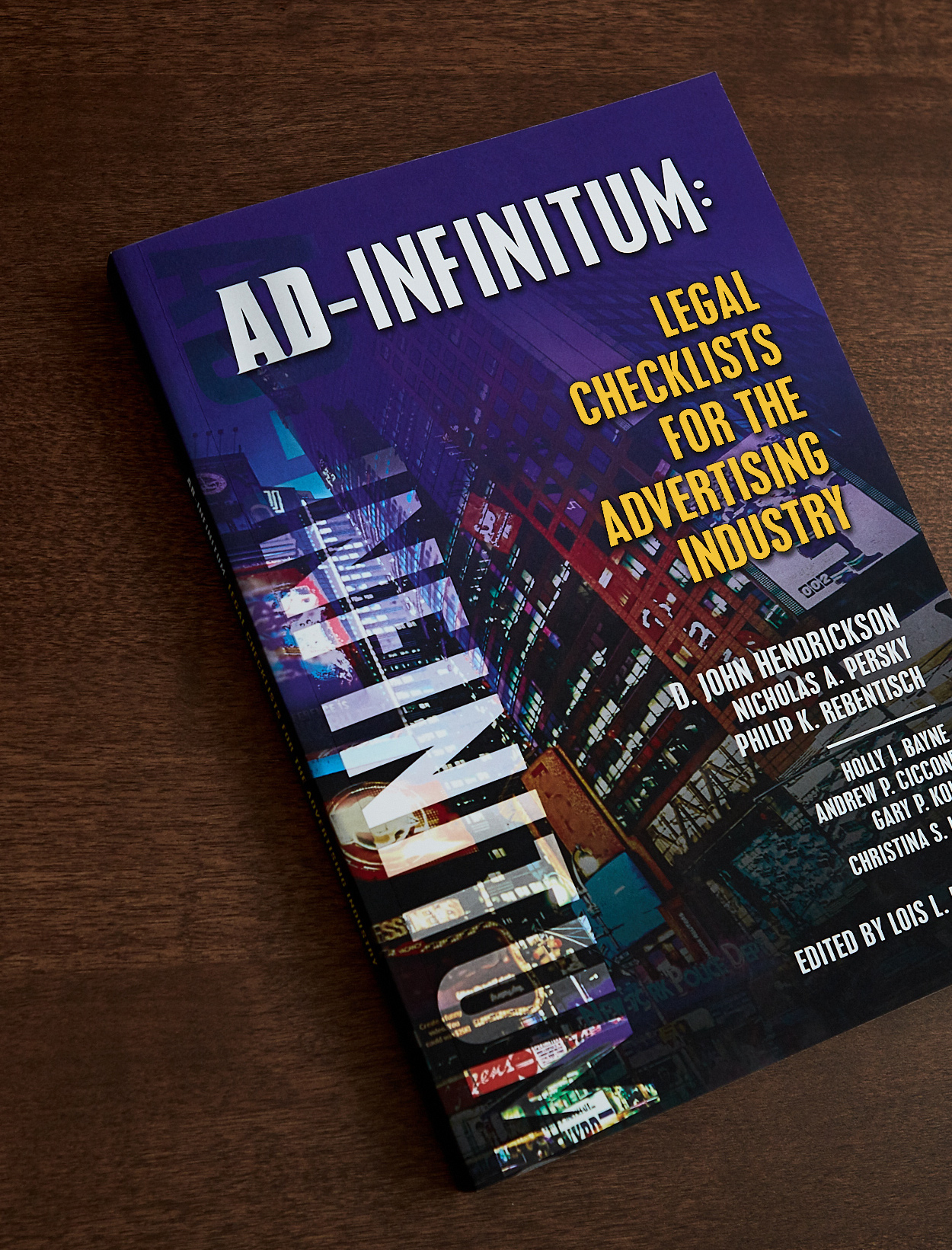Navigate the media industry with
our experienced legal counsel &
valuable risk assessment
Navigate the media industry with our experienced legal counsel & valuable risk assessment
Our Specialties
Our law firm specializes in advertising & media law. Not tax law. Not wills and trusts. Not personal injury. Like our clients, we understand that media is its own universe that deserves our complete attention. As a result, our personal commitment and timely responsiveness are two of our greatest core assets.
We spend our day evaluating advertising campaigns and marketing content for broadcast, online, mobile, print, radio, out-of-home, point-of-sale and event-based executions. Our focus is on the details, including claims substantiation, proper disclaimers, and intellectual property issues.
WE PLAY WELL WITH OTHERS
In addition to ad agencies, we advise advertisers and their legal teams about the full array of issues relevant to their campaigns. We are comfortable in a purely behind-the-scenes role directly assisting in-house counsel or interacting with a company’s employees. We’re always happy to discuss a potential issue with new and existing clients, so please don’t hesitate to contact us.
SILICON BEACH IS OUR BACKYARD
We are minutes away from the media and tech convergence taking place in Santa Monica, Venice, Playa Vista, El Segundo and Manhattan Beach. But it’s not just a physical presence; we understand and are part of the culture that thrives on innovation and disruption.
Our Services
Your job is to create great advertising and marketing. Our job is to identify, assess, and explain any potential legal risks connected to the campaign. While every advertisement is unique, the review process is not; it requires expertise, skill, and perspective.
We can help make sense of the legal risks you face:

Our Services
Your job is to create great advertising and marketing. Our job is to identify, assess, and explain any potential legal risks connected to the campaign. While every advertisement is unique, the review process is not; it requires expertise, skill, and perspective.
We can help make sense of the legal risks you face:

Our Services
Your job is to create great advertising and marketing. Our job is to identify, assess, and explain any potential legal risks connected to the campaign. While every advertisement is unique, the review process is not; it requires expertise, skill, and perspective.
We can help make sense of the legal risks you face:

Our Reputation
We are known for our experienced legal counsel. Your ability to prepare for the legal risks in any marketing effort will be as strong as our knowledge and attention to detail. We don’t disappoint.
Our Reputation
We are known for our experienced legal counsel. Your ability to prepare for the legal risks in any marketing effort will be as strong as our knowledge and attention to detail. We don’t disappoint.

AD-INFINITUM:
Legal Checklists for the
Advertising Industry
As a way to give back to our loyal clients and friends (and, in all honesty, because we love what we do), we wrote a book entitled AD-INFINITUM: Legal Checklists for the Advertising Agency. It’s available in both print and digital formats via Amazon.com. Our clients know that the advertising business is a fascinating combination of creativity, content creation, data analysis, media strategy, and business acumen.
We wrote this book to help you better understand the legal side of modern advertising and hopefully avoid issues that can affect any campaign, no matter the size. It’s written in an accessible style for industry professionals, in-house counsel, and law firm personnel, providing quick summaries for a variety industry-related topics. Plus, it’s perfectly sized to fit in your backpack or brief case without resulting in a trip to the chiropractor!
Law Pay Processing System
As a courtesy to our clients, our Firm offers online payments through LawPay. LawPay is a secure payment system that is compliant with all card brand security standards, ensuring protection of your personal information.

Law Pay Processing System
As a courtesy to our clients, our Firm offers online payments through LawPay. LawPay is a secure payment system that is compliant with all card brand security standards, ensuring protection of your personal information.
MANHATTAN ADVERTISING
& MEDIA LAW, INC.
44489 Town Center Way, Suite D – No. 477
Palm Desert, CA 92260
Telephone: (310) 343-7200
Fax: (213) 212-4749
Contact
John Hendrickson: jhendrickson@admedialaw.com
MANHATTAN ADVERTISING & MEDIA LAW, INC
44489 Town Center Way, Suite D – No. 477
Palm Desert, CA 92260
Telephone: (310) 343-7200
Fax: (213) 212-4749
Contact
John Hendrickson: jhendrickson@admedialaw.com